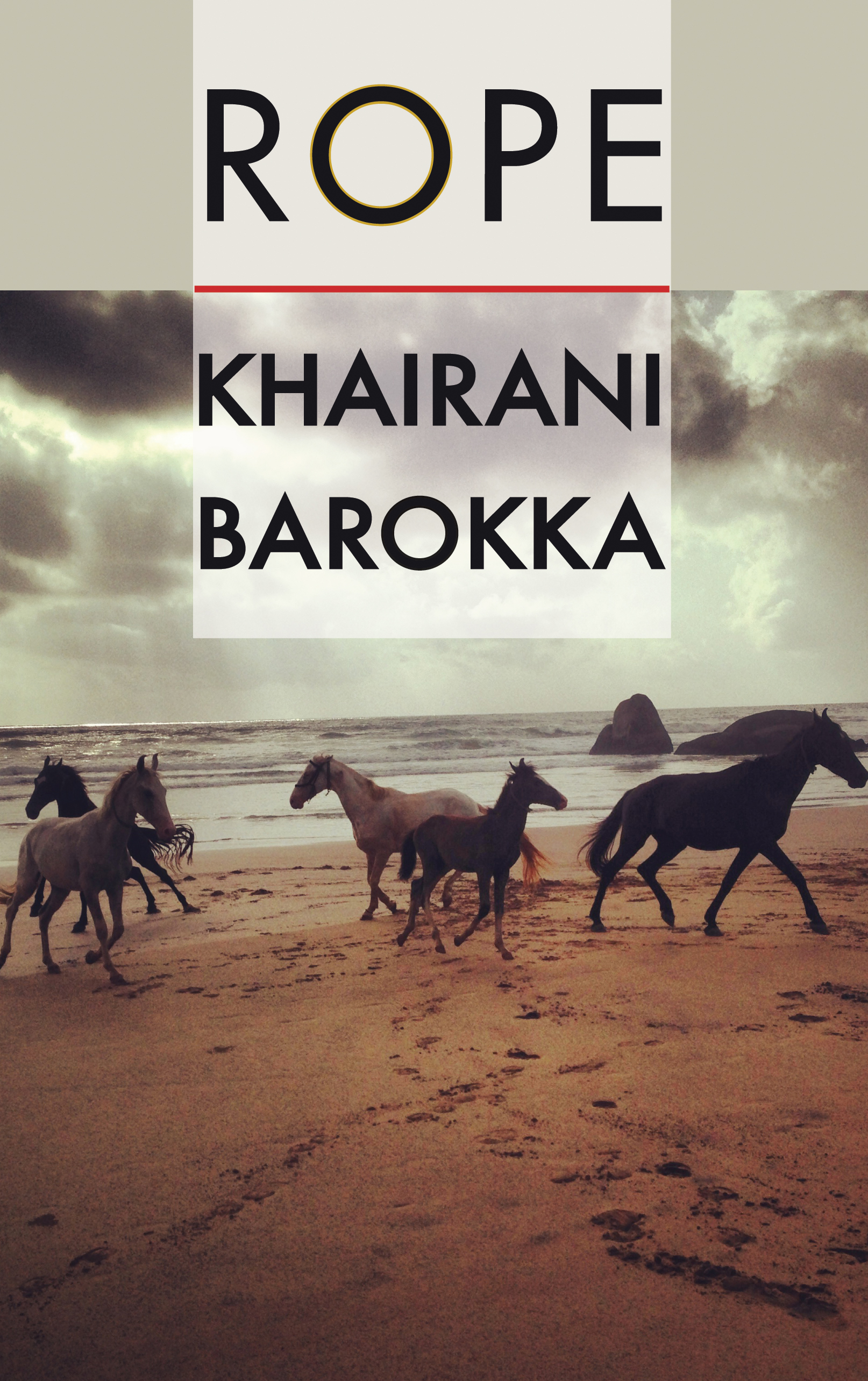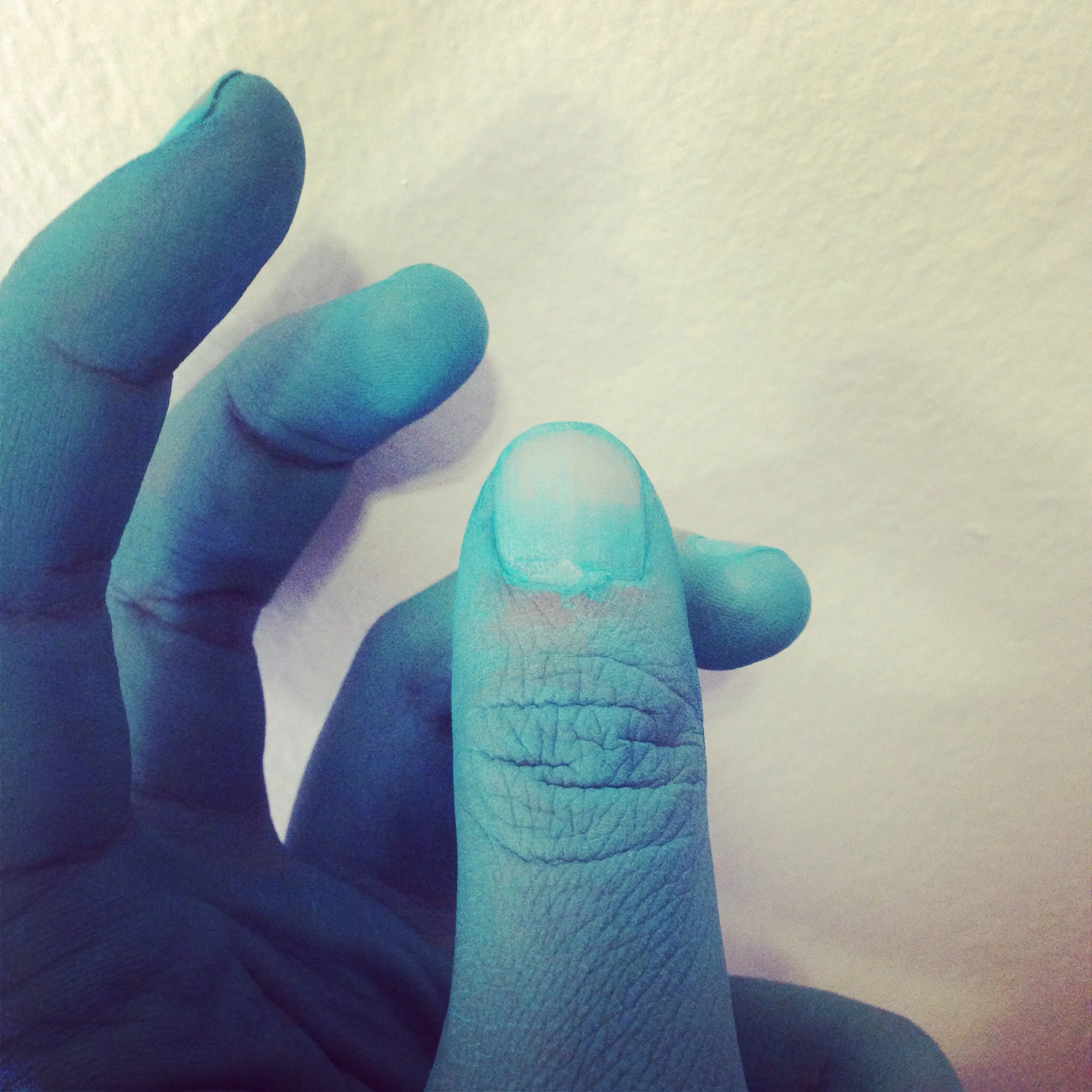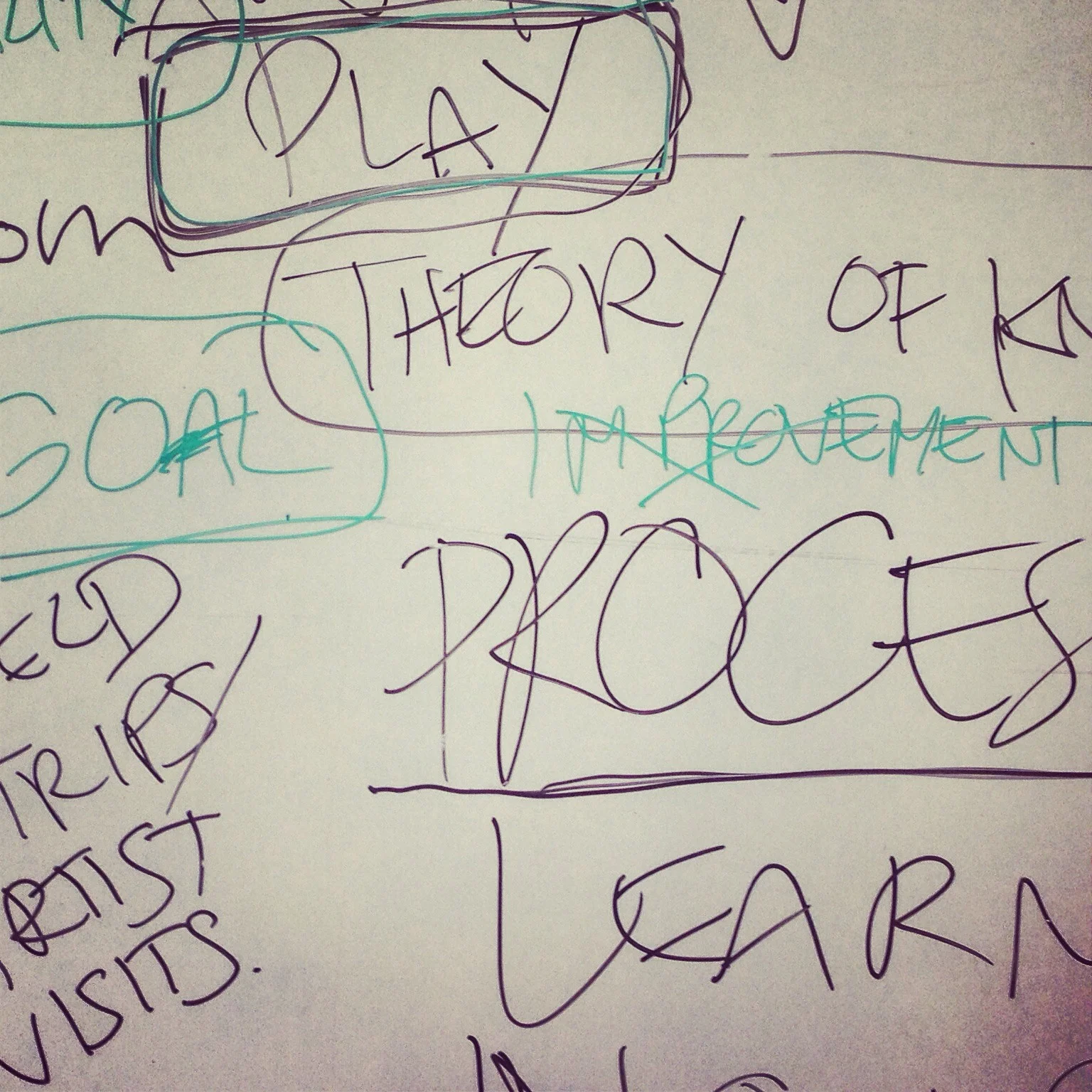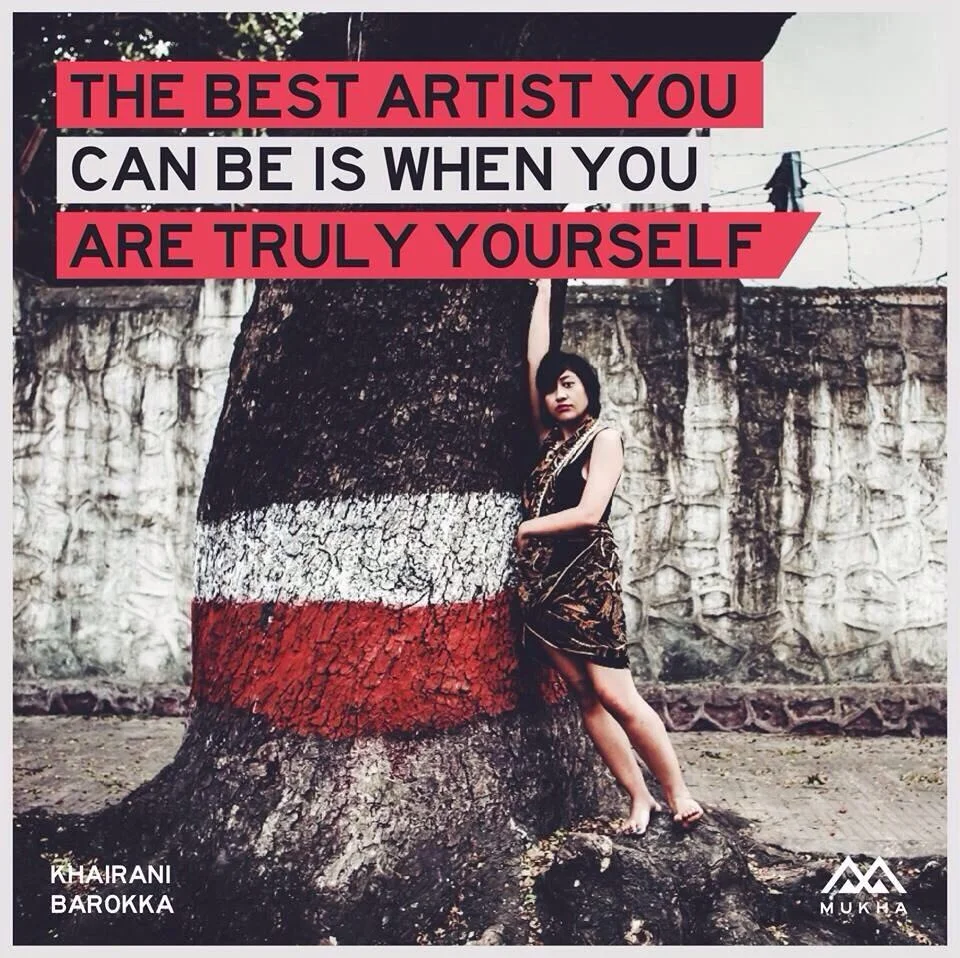Buy Okka’s latest book amuk (Nine Arches Press, March 2024) here.
Cover artwork: Khairani Barokka
Khairani Barokka’s uncompromising third collection of poetry amuk sheds light on the devastating and ongoing effects of a single word's mistranslation, and emphasises what exists in opposition to such hostile histories and presents: hope, resistance, and joy.
Groundbreaking in its use of form and poetics, amuk deconstructs the brutal workings of oppressive systems to examine how, “through macheted etymology”, violence and suffering is replicated through (mis)translation. From linguistic corruption and domination, the poems make connections to the mutilation and ruin caused by an extractive colonialism that destroys whole peoples, cultures, languages, and environments. Through Khairani Barokka’s own recognition of "linguistic cosmology – how stars move and imprint upon the body", radical poems of fury and prayer look towards the sacred and ancestral, towards survival and continuance, and the vital, living resistance of persisting languages, and resilient peoples.
Praise for amuk:
‘amuk is Khairani Barokka's best book so far, exploring incisively the (linguistic) possibilities of resistance. 'amuk', the longest poem in the book, ingeniously enriches the discussion about Global South rage towards colonial powers. This book 'is/was/will-be' a gift.’ - Norman Erikson Pasaribu, author of Happy Stories, Mostly
‘Khairani Barokka’s poetry both makes and unmakes, picking apart the fabric and function of language so that we may put it to braver and more necessary use. amuk is the work of a visionary.’ - Victoria Adukwei Bulley
‘A poetic act of resurrection. A defiant and hope-giving epic of a collection, reversing colonisation's murders to restore its victims to life. In these poems, buds sprout from what was severed, forests spring from land made waste. The end transforms into a beginning, a prayer stretching its tender leaves towards the sun.’ - Tiffany Tsao
Image description: ULTIMATUM ORANGUTAN cover. Book cover shows a dark purple background with two asymmetrical gold stripes running down the left and right sides of the frame, and a diagonal white rectangle with the words 'ULTIMATUM ORANGUTAN' and 'KHAIRANI BAROKKA' on it, in black text, separated by a small, purple stripe. The image shows a brown hand, upright with palm out, throwing purple and white energy attacks at a black-and-white bulldozer. Behind them is a purple-tinted image of Tanah Datar, West Sumatra, Indonesia.
Cover illustration by Khairani Barokka.
Buy Khairani Barokka's 2021 book Ultimatum Orangutan here.
Khairani Barokka's second poetry collection is an intricate exploration of colonialism and environmental injustice: her acute, interlaced language draws clear connections between colonial exploitation of fellow humans, landscapes, animals, and ecosystems. Amidst the horrifying damage that has resulted for peoples as interlinked with places, there is firm resistance. Resonant and deeply attentive, the lyricism of these poems is juxtaposed with the traumatic circumstances from which they emerge. Through these defiant, potent verses, the body—particularly the disabled body—is centred as an ecosystem in its own right. Barokka's poems are every bit as alarming, urgent and luminous as is necessary in the age of climate catastrophe as outgrowth of colonial violence.
Praise for Ultimatum Orangutan:
"Khairani Barokka's Ultimatum Orangutan is a book like no other. But what does that mean? It means that Barokka finds a new music via which she is able to tell us things we thought we knew, but didn't quite know. How to tell the time by sky. How to see our planet's history of climate change through a lyric poet's eye and be astonished. She tells us that strangeness is perhaps our last chance. She finds a language to speak about everything and anything. Even to speak about eight hundred-odd US military bases ("they stud me like a punk"). I am writing from a drowning ship, she says. Meaning our planet, friends. She teaches rage, that sun-cloaked wrath. Violence taught us elegance, she says. That ghost orchid is wisdom, she says. This is planetary poetics. Listen. Listen to the voice of this poet. It might not be too late for us, after all. Ultimatum Orangutan is an inimitable, necessary book." -
Ilya Kaminsky, author of Deaf Republic and Dancing in Odessa
"Ultimatum Orangutan is a vital, generous, hugely ambitious collection. Written against all forms of extinction, it reminds us that even in these end-times ‘there is still the new’. I always feel I learn from Okka’s poems, as a poet and a human. Everyone should read this book." - Clare Pollard
“At once ethical, sensual and lyrically embodied, Khairani Barokka’s poems harness the weight of linguistic inheritances amid global dangers: climate change, postcolonial violence, inequality. Through this insistent intimacy, a rapport with both the dead and the living, she challenges each of us to carry the charge of our own lives with decency, care and responsibility. These are daring poems that require us to urgently listen.” – Sandeep Parmar
“Barokka’s work has the urgency of an ultimatum, but not its finality - nothing is settled in these original, stylish, questioning poems. Ranging across epochs and continents, they confront a Colonial past of ‘plunder mausoleumed' and a future apocalypse of 'rainforest tindering quick’, finding the hidden threads of continuity between the two. Environmental catastrophe, global inequality and bodily ill-health take their toll on the ‘fracked nervous systems’ of the individual life, in poems that walk alongside pain and hold its hand. I was blown away by this book: Barokka is an extraordinary poet, whose work is both memorial and wake-up call in this ‘world burnt already’.” – Sarah Howe
The cover of Rope, Nine Arches Press. Cover photograph by Khairani Barokka.







